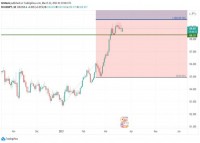|
Opalesque Industry Update - Managed Funds Association (MFA), the trade association for the global alternative asset management industry, submitted an economic study and a comment letter on proposed rules to define the terms "dealer" and "government securities dealer" to the U.S. Securities and Exchange Commission (SEC).
The economic study by Professor Craig Lewis uncovered fundamental flaws with the proposals and the associated cost-benefit analysis. Separately, MFA submitted a letter recommending a more tailored approach for the SEC to utilize that enables the Commission to achieve its regulatory goals while mitigating the negative impacts to markets and market participants. MFA's letter to the SEC supplements MFA's previous comment letter from May and the economic review and analysis from Professor Lewis. MFA's position, supported by Professor Lewis' study, is that the Dealer Rule imposes an unworkable regulatory structure that would cause many private funds to reduce or cease their Treasury trading activity at a time when the size of the Treasury market continues to expand. The rule, as proposed, will lead to greater concentration, fewer market participants, and increased volatility, which is the opposite of the SEC's stated objective. The more tailored approach proposed by MFA resolves these issues by altering the qualitative tests, quantitative test, and the common control provision in the proposed rules. "The proposed Dealer Rule is unworkable in its current form," said Bryan Corbett, President and CEO of MFA. "MFA's alternative approach for the proposed rule provides the SEC with solutions that achieve their policy goals without harming returns for pensions, foundations, and endowments. These detailed recommendations are part of a broad-based effort to provide the SEC with constructive comments to its recent wave of new rulemakings." MFA commissioned Craig Lewis, Professor of Finance and Professor of Law at Vanderbilt University and former SEC Chief Economist and Director of the Division of Economic and Risk Analysis, to review the economic impact of the SEC Dealer Rule. The study finds that the SEC's economic analysis does not cite any data, market event, or enforcement action justifying the need for broader-dealer registration. From the study: "The Commission also does not provide data, analysis, or other evidence demonstrating that the types of market participants the new rules would target risk presenting purported negative externalities in any significant way. The Proposal cites to a few anecdotes, but these anecdotes do not demonstrate the type of risks that the Proposal is purportedly addressing. Likewise, the Commission justifies the new rules by suggesting dealer registration will deter fraud and manipulation. However, the SEC fails to present any evidence that dealer-specific regulatory requirements will contribute to this goal[.]" The study uncovers that the SEC's proposed rules would capture a much broader audience than what the stated objective of the rules are-including market participants who engage in ordinary investing, trading, arbitrage, hedging, and cash and collateral management. From the study: "The qualitative prongs of the Proposed Rules will likely scope in large numbers of investors who are not engaged in traditional dealing activity and do not risk imposing negative externalities on other market participants. Regardless, these investors may trigger the qualitative prongs in the course of their ordinary investing, hedging, arbitrage, or cash and collateral management activities." "The quantitative prong is completely detached from any requirement that a market participant even be a liquidity provider or engage in activities historically understood by the Commission and the courts as "dealing" activity. It is based only on trading volume." The study notes that the SEC's economic analysis does not explain how the proposal would address the issues they have identified. From the study: "[T]he Commission fails to demonstrate that the Proposed Rules address the claimed negative externalities. For example, the Commission does not evaluate whether or how the net capital rule would lower the amounts of leveraged used by affected entities. Nor does it provide evidence that the operational risk controls required under the broker-dealer regulatory framework would limit these externalities. Nor does it describe how trade reporting and incremental changes to examinations and books and records requirements would increase the ability to detect market manipulation and fraud[.]" The study identifies that the SEC's economic analysis fails to consider the significant unintended consequences of the proposed rule, including the loss of customer protections and the broader impact on the U.S. Treasury market. From the study: "[T]he Commission does not consider that dealer registration would prohibit affected market participants from access to IPOs and cause them to lose various customer protections. More broadly, over expansive dealer registration requirements might have detrimental effects on liquidity. Given that the Commission claims that market participants who are not registered as dealers are 'critical sources of liquidity in the U.S. Treasury market,' they should at least evaluate the impact on liquidity of any proposed regulation targeting these market participants. It is unrealistic to assume that current participation levels will be unaffected by expanded dealer registration requirements."
|
Industry Updates
Former SEC chief economist flags fundamental flaws with SEC dealer rule, MFA proposes alternative approach
Tuesday, December 06, 2022
|
|





 RSS
RSS







